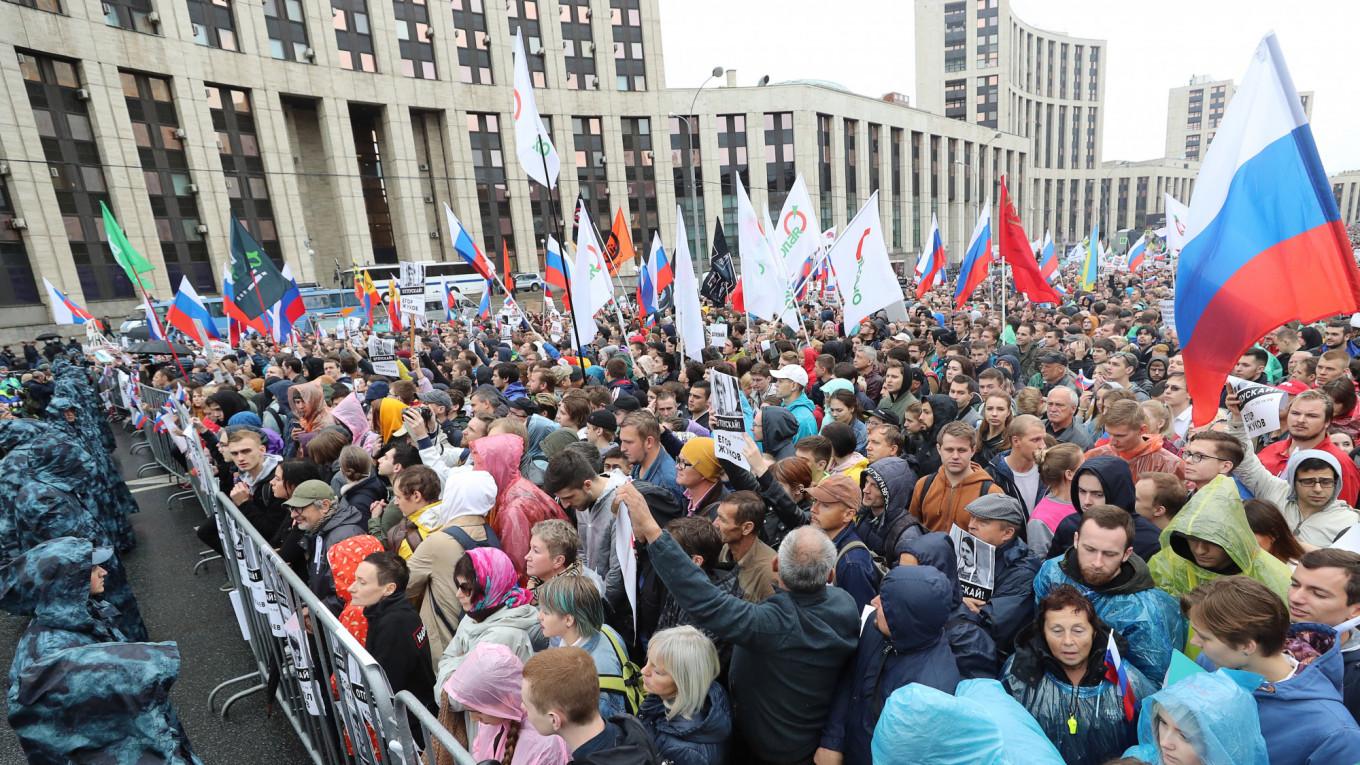The Kremlin Tightens the Screws on Public Dissent

In Russia’s staid parliament, the dying days of 2020 were marked by unusually frenzied lawmaking activity, most of it centering on civil rights.
Over the course of a few days in late December, the State Duma passed a flurry of bills introducing sweeping new restrictions on political protests, legalizing censorship of social media and cementing broad new guidelines under which the government can designate individuals as “foreign agents.” They have already been signed into law by President Vladimir Putin.
To many observers of Russia’s political scene, the new legislation — coming on the heels of the August poisoning of opposition activist Alexei Navalny — represents a pronounced hardening of Russia’s authoritarian system ahead of parliamentary elections in the fall.
“The state is waging war on civil society,” said Andrei Kolesnikov, senior fellow in Russian domestic politics and political institutions at the Carnegie Moscow Center. “This is the natural evolution of authoritarianism.”
The laws are a mixed bag, some tightening long-standing screws on opposition activity, while others respond to newer threats.
New restrictions banning public demonstrations near law enforcement premises, defining single-person pickets — the traditional means of avoiding restrictions on mass gatherings — as protests, and prohibiting support of rallies by foreign individuals or organizations are the latest moves in a years-long tightening of laws on mass demonstrations.
Likewise, a law allowing individuals to be categorized as “foreign agents,” a legal term critics see as redolent of Soviet-era purges, comes after several years of the label being applied to organizations ranging from human rights groups to independent pollsters.
Other provisions, including those allowing the state to ban social media networks that censor Russian state media are new. One bill criminalizing the spread of libel online is aimed partly — according to its author, United Russia deputy Dmitry Vyatkin — at popular channels on the messaging app Telegram, which many Russians turn to for news and political gossip.
In particular, a law banning the disclosure of security service employees’ personal data has been linked by the BBC’s Russian Service to a recent Bellingcat investigation that used telephone and flight records to unmask the FSB officers behind the attempt on Alexei Navalny’s life.
More broadly however, the new restrictions are seen by political analysts as the Russian state girding itself for a difficult year in which the pro-Kremlin United Russia bloc will have to defend its supermajority in the State Duma amid a spirited opposition challenge and low approval ratings for the ruling party.
“These laws are a hedge against all possible scenarios,” said Carnegie’s Kolesnikov. “Including those related to the elections.”
 Latest news
Latest newsForeign Interests and Native Fatigue: Iran on the Brink
11.Jan.2026
“Muslim NATO”: Turkey’s New Strategic Vector
10.Jan.2026
The Use of the “Oreshnik” Missile and a New Phase of Escalation Around Ukraine
09.Jan.2026
Solidarity Deferred: Croatia and Romania’s Dangerous Retreat
08.Jan.2026
Azerbaijan’s Eurasian Initiative: Ambitions, Challenges, and Doubts
07.Jan.2026
The Great Rotation: Personnel Reshuffles in Ukraine’s Leadership
06.Jan.2026
The United States Did Not Confirm an Alleged Ukrainian Attack on Putin’s Residence
05.Jan.2026
The Trans-Caspian Fiber Optic Cable: A Digital Milestone Connecting Europe and Asia
04.Jan.2026
Georgia Hopes for a Review of Venezuela’s Recognition of Abkhazia and South Ossetia Amid Ongoing Crisis
04.Jan.2026
Ukraine’s Allies Discuss Security and the Future of a Peace Settlement
03.Jan.2026

 14 Jan 2026
14 Jan 2026








